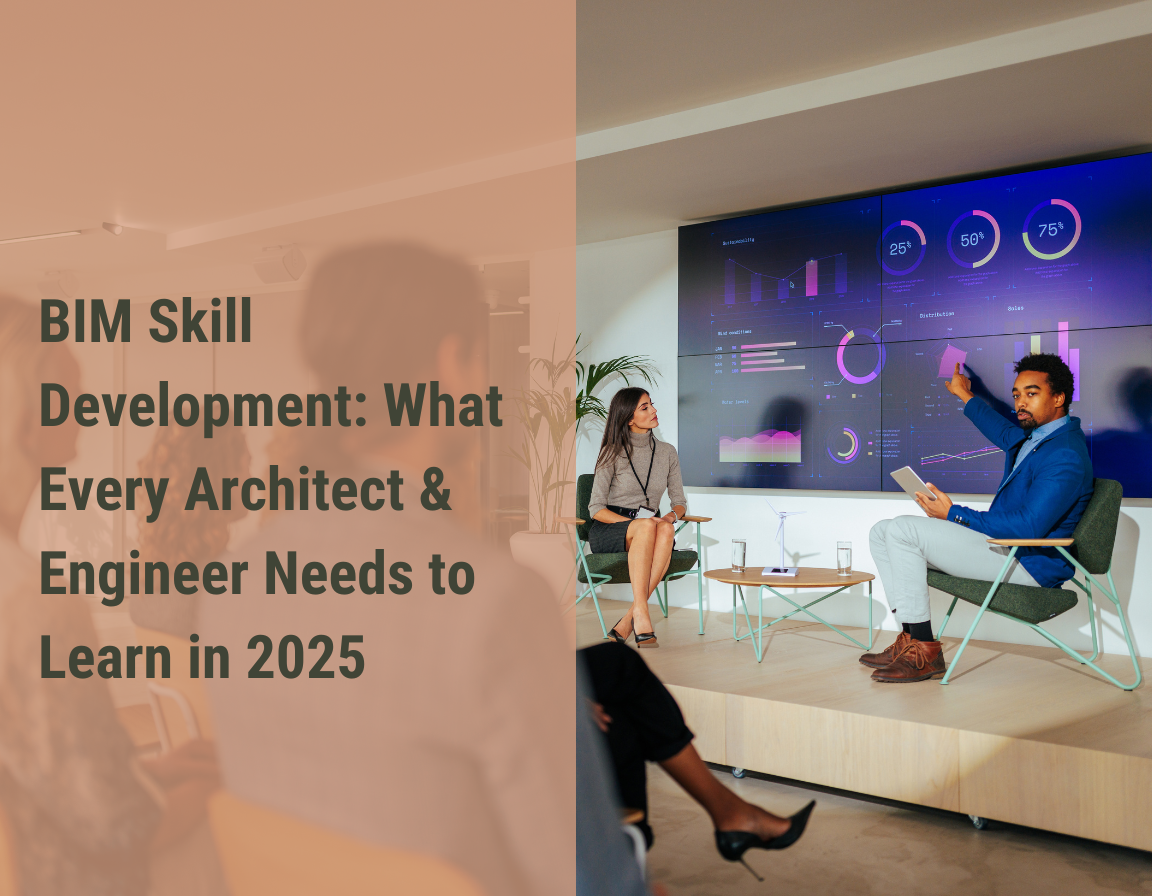
Introduction
The Architecture, Engineering, and Construction (AEC) industry is evolving rapidly, and Building Information Modeling (BIM) is at the forefront of this transformation. As BIM adoption continues to grow globally, architects and engineers must stay updated with the latest skills and technologies to remain competitive. In 2025, BIM professionals will need more than just software proficiency—they must master collaboration, automation, and data-driven decision-making. This article explores the essential BIM skills every architect and engineer should learn in 2025 to future-proof their careers.
1. Advanced Proficiency in BIM Software
While knowing the basics of BIM software like Revit, Archicad, and Tekla Structures is essential, advanced skills will be in high demand. Key areas of focus include:
- Parametric modeling and adaptive components in Revit and Archicad
- Dynamo and Grasshopper for computational design
- Navisworks for clash detection and coordination
- BIM 360 and ACC (Autodesk Construction Cloud) for cloud collaboration
2. Integration of AI & Automation in BIM
Artificial Intelligence (AI) and automation are becoming integral to BIM workflows. Architects and engineers must understand:
- Generative design for optimizing architectural and structural solutions
- AI-driven clash detection and risk assessment
- Automated model checking and quality control using machine learning algorithms
3. Data-Driven Decision Making in BIM
BIM is no longer just about 3D modeling—it’s about data. Skills in data analytics and management are crucial, including:
- Understanding and utilizing IFC (Industry Foundation Classes) for interoperability
- BIM data extraction and visualization with Power BI or Python
- Digital twin technology for real-time monitoring and predictive maintenance
4. Sustainable Design & BIM for Green Buildings
Sustainability is a key concern in AEC, and BIM plays a crucial role in achieving green building standards. Skills to develop:
- Energy analysis and simulation tools (e.g., Insight, IESVE)
- Carbon footprint analysis using BIM tools
- Integration with LEED and BREEAM certification processes
5. Collaboration & Coordination in BIM Workflows
As projects become more complex, seamless collaboration between teams is vital. In-demand skills include:
- Common Data Environment (CDE) management for centralized project data
- ISO 19650 standards for effective BIM implementation
- Multi-disciplinary coordination using federated BIM models
6. Extended Reality (XR) in BIM (VR, AR, & MR)
BIM is expanding beyond 3D modeling into immersive technologies such as Virtual Reality (VR), Augmented Reality (AR), and Mixed Reality (MR). Architects and engineers should focus on:
- Using VR for design review and client presentations
- AR-based on-site construction verification
- Integration of BIM models into HoloLens and Oculus for real-time collaboration
7. Programming & Scripting for BIM Customization
To enhance BIM capabilities, knowledge of scripting and coding is a valuable asset. Key programming skills include:
- Dynamo for Revit and Grasshopper for Rhino
- Python scripting for automation in BIM workflows
- API development for custom BIM applications
8. BIM & Digital Construction Management
BIM is central to modern project management, and understanding construction workflows is crucial. Important skills include:
- 4D BIM (time scheduling) using Synchro or Navisworks
- 5D BIM (cost estimation) with CostX or Vico Office
- Digital twin applications for facility management
9. Cybersecurity & BIM Data Protection
With the increasing reliance on cloud-based BIM collaboration, cybersecurity is more critical than ever. Skills to develop:
- Understanding cybersecurity risks in BIM environments
- Implementing secure access controls for BIM platforms
- Ensuring compliance with data protection regulations
10. Learning from Industry Leaders & Continuous BIM Education
BIM technology is constantly evolving, and continuous learning is essential. Architects and engineers should:
- Enroll in BIM training programs from platforms like Lupiter Academy
- Participate in industry conferences and webinars
- Stay updated with emerging BIM trends and standards
Conclusion
BIM skill development in 2025 goes beyond software proficiency. Architects and engineers need expertise in AI, automation, data analytics, sustainability, XR, and digital project management. By mastering these skills and continuously learning through platforms like Lupiter Academy, professionals can stay ahead in the competitive AEC industry.
Ready to upgrade your BIM skills? Explore expert-led courses at Lupiter Academy today!


